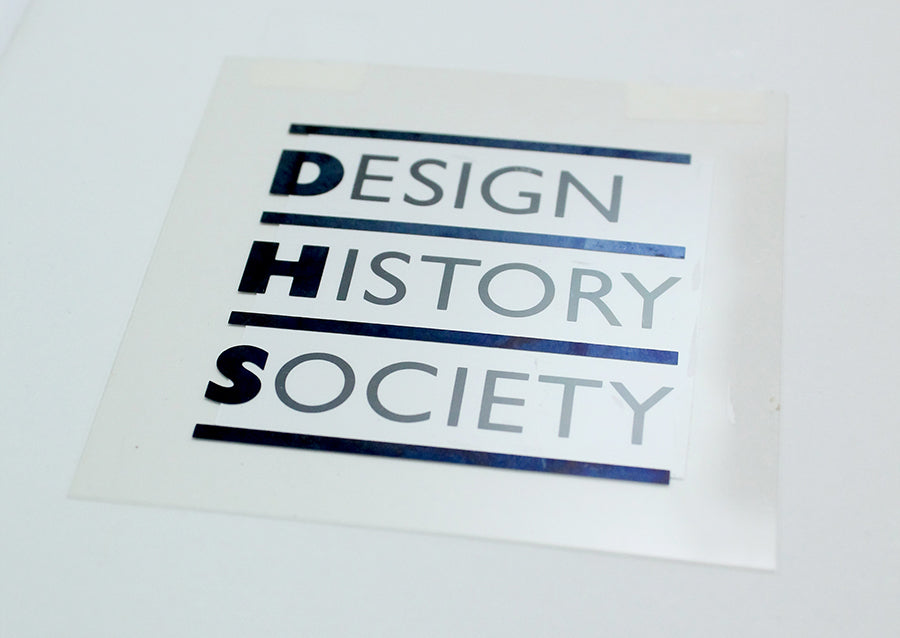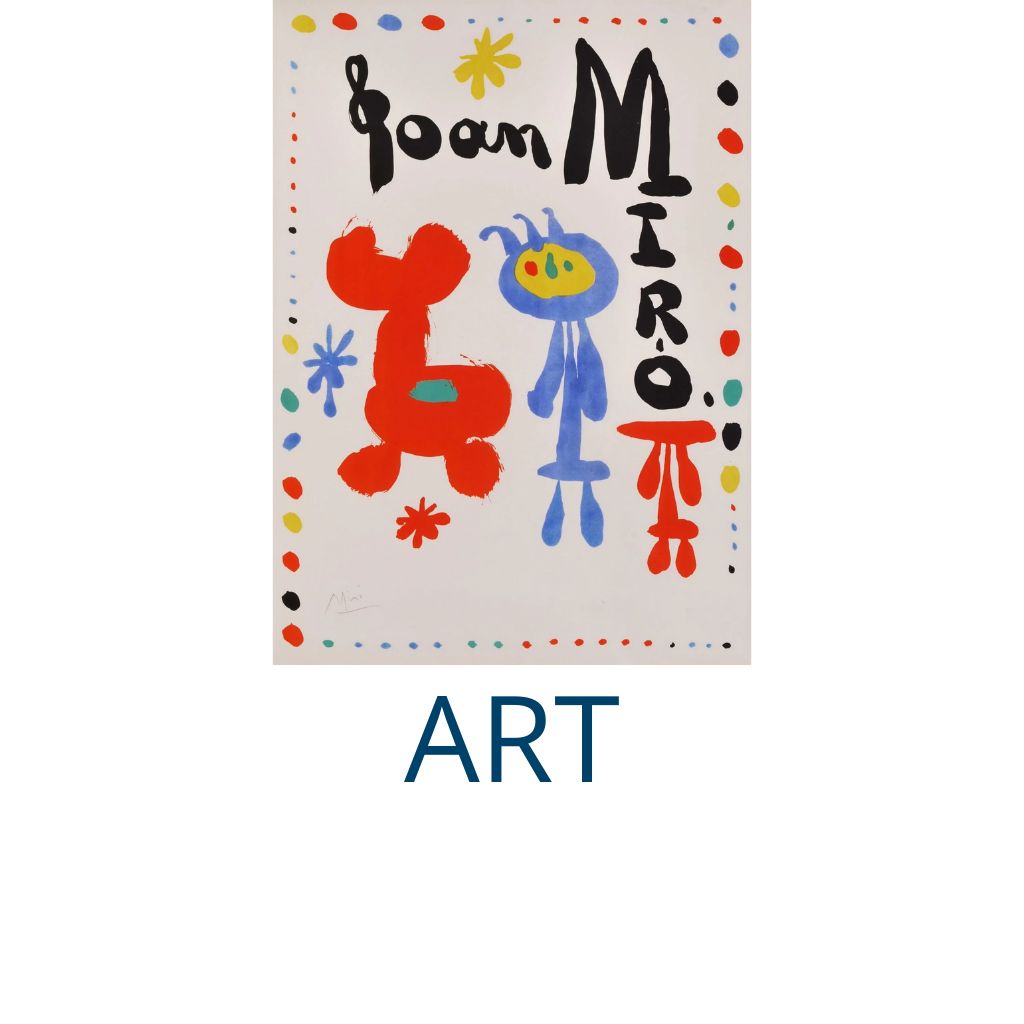
The Design History Society
Share
The Design History Society (DHS): Preserving and Exploring the Evolution of Design - Poster Authorities
The Design History Society (DHS) is a prominent organization dedicated to the study, promotion, and preservation of design history. It serves as a vital resource for researchers, scholars, educators, and practitioners interested in understanding the development, influence, and cultural significance of design across different periods and media. This article provides an in-depth look into the services, history, and relevance of the Design History Society, with a special emphasis on its impact on poster collectors.
History and Origin
Founded in the United Kingdom in the late 1980s, the Design History Society emerged from a growing recognition that design history was an essential field of study that transcended traditional art and architectural history. It was established by a group of academics and professionals who recognized the need for a dedicated forum where interdisciplinary research could be shared and discussed. The society has since grown to include members from all over the world, becoming a central hub for those interested in design history.
DHS aims to foster an understanding of the diverse aspects of design history, including industrial design, graphic design, fashion, typography, and advertising. It provides a platform for scholarly research, publications, conferences, exhibitions, and networking opportunities. Over the years, DHS has established itself as a leading organization in the field, known for its commitment to high standards of academic rigor and accessibility.
Services and Activities
The Design History Society offers a wide range of services and activities that cater to the needs of its members and the broader design community:
Conferences and Events:
DHS organizes annual conferences that bring together scholars, professionals, and enthusiasts to present their research, exchange ideas, and discuss current trends in design history. These events often feature keynote speakers, panel discussions, and workshops that cover a broad spectrum of topics, from historical design movements to contemporary design practices.
Publications:
DHS publishes a variety of materials, including journals, books, and online resources that explore different facets of design history. The society’s journal, Design History, is a leading publication in the field, offering peer-reviewed articles that cover a wide range of topics from design theory and methodology to case studies of specific designers, movements, and artifacts.
Research and Education:
DHS supports research and education through grants, fellowships, and awards that promote the study of design history. The society also provides resources for educators, including teaching materials, course syllabi, and guidelines for research methodologies. DHS’s commitment to education ensures that new generations of designers and historians are equipped with the knowledge and skills needed to contribute meaningfully to the field.
Network and Collaboration:
As an international organization, DHS fosters a global network of members who share an interest in design history. The society encourages collaboration among researchers, practitioners, and institutions, facilitating partnerships that enhance the study of design and its history. DHS’s global reach helps to ensure diverse perspectives and a comprehensive understanding of design across cultures.
Relevance to Poster Collectors:
The Design History Society holds particular relevance to poster collectors, as it actively explores poster design as an integral part of design history. Posters are a key medium of visual communication, and DHS recognizes their importance in documenting cultural, political, and social developments. The society’s conferences, publications, and exhibitions often feature discussions on poster design, its evolution, and its role in shaping public perception.
Exhibitions and Displays:
DHS organizes exhibitions that showcase significant posters from different historical periods and design movements. These exhibitions provide an opportunity for poster collectors to see rare and valuable works, learn about their context, and gain insights into their historical significance. The society’s exhibitions are often accompanied by lectures, guided tours, and publications that deepen the understanding of poster design as an art form.
Online Resources:
The DHS website is a valuable resource for both poster collectors and researchers. It includes an extensive archive of articles, essays, and bibliographies related to poster design history. The site also features an online community where members can exchange information, share resources, and discuss topics of interest. For poster collectors, DHS offers an essential platform for learning about the history, aesthetics, and significance of poster art.
Educational Impact:
DHS’s educational initiatives play a critical role in shaping the next generation of design historians and poster collectors. The society’s publications and conferences provide a deep dive into the history of poster art, exploring its role in communication, marketing, and cultural expression. For poster collectors, understanding the historical context of posters adds value and significance to their collections.
Significance and Cultural Impact:
The Design History Society has had a profound impact on the study and appreciation of design history. By promoting research and dialogue, DHS helps to preserve the rich legacy of design and ensure that it remains relevant in contemporary discourse. The society’s focus on poster art is particularly important, as posters are a unique form of visual communication that reflects the social, political, and cultural dynamics of their time.
Preservation of Design Heritage:
DHS plays a key role in preserving the history of design, including posters, by providing resources, support, and opportunities for research. The society’s commitment to preservation is evident in its collaboration with museums, libraries, and archives to collect, document, and exhibit significant poster works. For poster collectors, DHS offers a critical link to the history and evolution of the medium.
Cultural Influence:
Posters have always been a powerful medium for communicating ideas, expressing political views, and advertising products. DHS recognizes the importance of posters in shaping public opinion and reflecting cultural changes. Through its publications, conferences, and exhibitions, the society encourages a deeper understanding of poster design’s cultural impact, helping collectors appreciate the broader historical context of their collections.
Collaboration and Global Reach:
DHS’s international network enables collaboration across borders, fostering a global dialogue on design history. By connecting poster collectors with scholars and practitioners worldwide, the society enhances the understanding of design as a universal language. This global reach is especially beneficial for poster collectors who seek to deepen their knowledge of the medium and its place in global visual culture.
Challenges and Future Directions
As with many professional societies, DHS faces challenges related to the rapid pace of technological change, shifting educational paradigms, and the need to adapt to new forms of design and communication. However, the society remains committed to its mission of promoting design history and fostering a deeper understanding of the role of design in society. DHS is working to expand its reach and engage with new audiences, including digital native generations who are shaping the future of design.
The society also aims to continue exploring the intersections between design history and other fields, such as cultural studies, media studies, and art history. This interdisciplinary approach ensures that design history remains relevant and continues to evolve as a dynamic field of study.
Conclusion
The Design History Society is a cornerstone of the global design community, dedicated to promoting the study, preservation, and appreciation of design history. Its focus on poster art enriches our understanding of this influential medium and provides a platform for collectors to engage with its rich history. Through its conferences, publications, exhibitions, and educational initiatives, DHS ensures that design history remains accessible, relevant, and a vital part of contemporary discourse.
Website: https://www.designhistorysociety.org/




